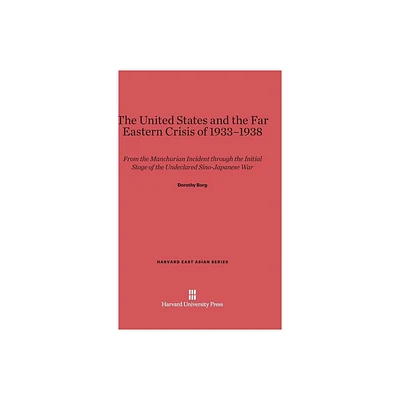Home
The United States and Somoza, 1933-1956: A Revisionist Look
Loading Inventory...
Barnes and Noble
The United States and Somoza, 1933-1956: A Revisionist Look
Current price: $95.00


Barnes and Noble
The United States and Somoza, 1933-1956: A Revisionist Look
Current price: $95.00
Loading Inventory...
Size: OS
*Product Information may vary - to confirm product availability, pricing, and additional information please contact Barnes and Noble
The first in-depth look at U.S. relations with the founder of the Somoza family dynasty in Nicaragua, Clark's book breaks new ground in diplomatic history. Based solidly on the diplomatic record, this work takes a strong revisionist stance, arguing against the commonly accepted view that the United States created the Somoza regime and kept the first Somoza in power as a surrogate to protect U.S. interests in Central America. To the contrary, the author reveals that U.S. officialsprincipally foreign service officersfought tirelessly for democracy in Nicaragua during most of the long Somoza Garcia era. Clark's work shows that throughout the 1930s and 1940s there was a consistent effort by the U.S. government to oppose dictatorship in Nicaragua, an effort not diminished until Cold War obsessions finally overtookand eventually consumedWashington's Latin American policymakers.
Clark demonstrates that Somoza's continuance in power was clearly due to his own political brilliance, dark as it surely was, and not to U.S. support for his regime. Somoza simply outlasted American opposition to his dictatorship. By the 1950s, the Cold War had driven Washington to embrace the most reprehensible of allies as long as they joined the anti-communist crusade. Clark's diplomatic history will be useful for scholars and students of U.S. foreign relations, U.S.-Latin American relations, and U.S. diplomacy.
Clark demonstrates that Somoza's continuance in power was clearly due to his own political brilliance, dark as it surely was, and not to U.S. support for his regime. Somoza simply outlasted American opposition to his dictatorship. By the 1950s, the Cold War had driven Washington to embrace the most reprehensible of allies as long as they joined the anti-communist crusade. Clark's diplomatic history will be useful for scholars and students of U.S. foreign relations, U.S.-Latin American relations, and U.S. diplomacy.


















